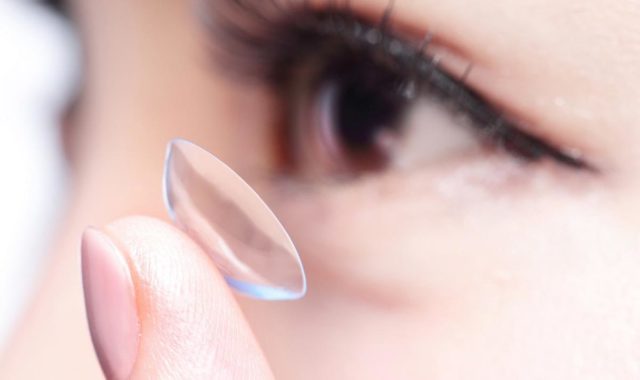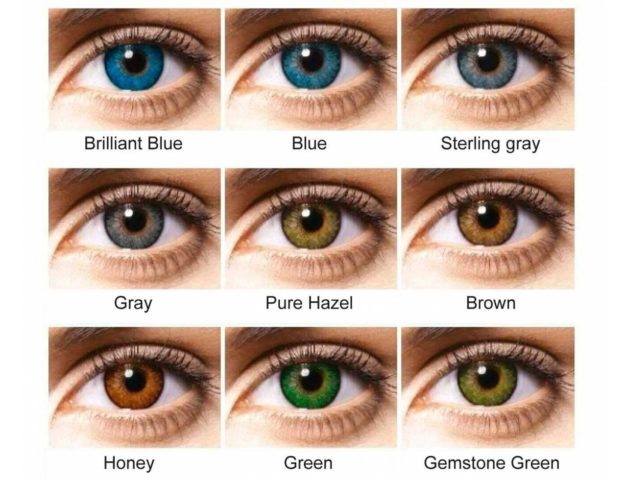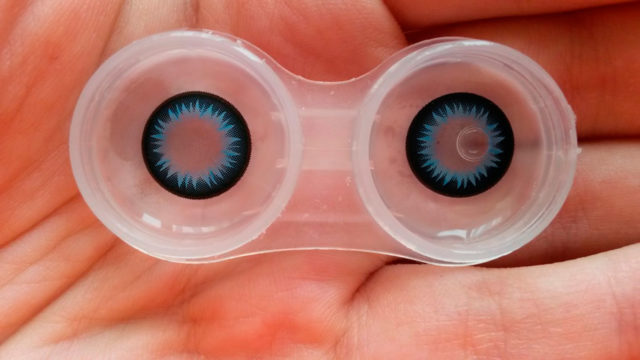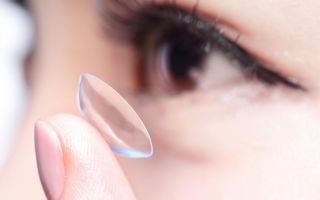Content
The benefits and harms of lenses for the eyes must be considered before making a purchasing decision. Their convenience has been appreciated by millions of people around the planet. At this time, there are many myths regarding the dangers of these vision correctors and how they affect the eyes. But with improper use, violation of the recommendations for wearing, there is a possibility of problems.
Do lenses help to improve, restore vision?
The use of contact lenses is one of the most common methods of vision correction. But these funds affect its sharpness only while wearing. They have the same principle of operation as glasses. They refract light and direct the rays so that they are focused on the retina.
But wearing lenses does not affect vision in the future, does not help improve it. This is just a method of temporarily correcting it. They are used as an alternative to glasses. With the correct selection, while wearing them, the visual acuity reaches 100%, and after removal it returns to its original state.

Biconvex lenses help with hyperopia. In the center, their thickness is greater than at the edges. Scattering or biconcave models are prescribed for myopia. In the central part they are thin, and thickened along the edges.
Why lenses are dangerous for the eyes and how they affect vision
People who decide to start using contact means to improve their vision should be aware of possible problems and how they affect health. There is a possibility of negative consequences, harm to the eyes from wearing lenses, the benefits in this case will be minimized.
Every person's eyes are different. To determine the parameters, the doctor takes measurements using special equipment. The radius of the base curvature, the diameter of the pupils, and the required optical zone are determined. With the wrong choice of contact lenses, conjunctivitis, keratitis, corneal edema and other problems may develop. Failure to adhere to the wearing and care regimen negatively affects.
How colored lenses affect vision, are they dangerous to the eyes
The main purpose of colored contact lenses is to change the color of the eye. The most comfortable are the slightly tinted options. With their help, you can enhance the natural color of the eyes. But there are also opaque options with an intense color. They are designed to change the natural color of the eyes.
On sale you can find options both with diopters that allow you to correct visual acuity, and without them. In the latter case, they will perform only a decorative function.Before purchasing even such products, you need an ophthalmologist's consultation. Patients should understand that there is harm from lenses if they are not fitted correctly. They need to be changed with clean hands, stored in a container with a disinfectant solution. If the recommendation is followed, the risk of infection is minimized.
Regular wearing of these vision correction tools can damage the surface layer of the cornea and cause erosion on it. Because of this, the risk of infection and the formation of scar tissue increases.

Do night lenses help
There are models for temporary improvement. These are the so-called night or orthokeratological lenses. They are inserted into the eyes at bedtime and removed in the morning. They press on the cornea throughout the night and affect its curvature. Models are selected so that the load on the eye is redistributed, and the image is focused on the retina.
The indicated correction method is suitable only for people with myopia up to - 7. At a higher level of myopia, it is almost impossible to restore vision. They are also not suitable for patients with hyperopia.
But night lenses can damage the cornea. There is a risk of damage to the outer protective layer of the eyes due to the pressure exerted. This increases the risk of infection and the development of complications. Contact vision correction can lead to the development of keratitis. This is an inflammation of the cornea, in which it becomes cloudy, and ulcerations appear on its surface. At the same time, the eyes turn red, painful sensations arise.
Why are expired contact lenses dangerous?
All manufactured models have their own service life. It varies from one day to several months and is counted from the date the package was opened. In sealed containers, they can be stored for four years from the date of production.
Expired contact lenses negatively affect the condition of the eyes, because they are in direct contact with the mucous surface. This is manifested:
- irritation;
- tearing;
- redness;
- burning sensation.
Expired lenses are dangerous to wear. If you do not pay attention to the symptoms that appear in time, then you can skip the development of more serious problems. Bacteria, viruses, fungi, protozoa that accumulate in the lens can provoke the development of an inflammatory process.
Side effects of wearing lenses
The main danger of wearing lenses is the possible development of an inflammatory process. But these devices negatively affect the eyes of only 1-2% of people.

With regular contact lens wear, there is a risk of complications such as:
- allergic reactions;
- erosion of the cornea, resulting from impaired exchange of tear fluid and friction of the lens on the surface of the eye;
- papillary conjunctivitis;
- fungal, viral, bacterial keratitis;
- thinning of the cornea;
- the formation of new vessels due to a reaction to hypoxia.
When using one-day models, the likelihood of side effects is much lower. But if the rules of care are not followed, they also negatively affect the condition of the eyes.
Conclusion
The benefits and harms of lenses to the eyes should be evaluated by the patient after consultation with an ophthalmologist. The doctor will explain how the means for contact vision correction affect the cornea, what complications may arise. He will also talk about the rules for caring for them.
Reviews about the dangers of contact lenses for the eyes

